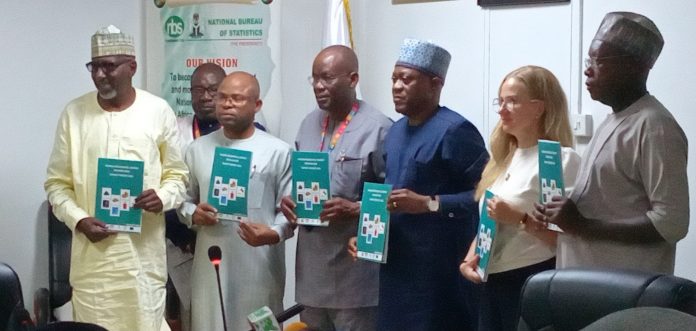A new survey, the Nigeria Residential Energy Demand-Side Survey 2024, has revealed that Nigerians spend about N600 billion every year to buy firewood for their cooking.
The citizens also cut an estimated 30 billion kilograms of Wood every year. The survey further reports that an estimated 67.8 percent of households used the fuelwood either for domestic, agricultural, commercial, cultural, or religious purposes, 22.0 per cent used charcoal and 19.4 percent of households reported using liquefied petroleum gas (LPG).
These households spend an average of N10,239.7 monthly on LPG across the surveyed states.
It also revealed that about 85.2 per cent of Nigerian households use estimated billing system, while only 15 per cent have prepaid meters.
The survey conducted by the National Bureau of Statistics (NBS), in conjunction with the Federal Ministry of Power (FMP), the Energy Commission of Nigeria (ECN), the International Energy Agency (IEA), and the European Union (EU), also revealed that Nigerian households spent at least ₦4,155.8 per month on electricity.
The survey which covers nine states across the six geopolitical zones also shows that between 2020 and 2024, the number of households connected to the national grid increased by only 3% from 55 per cent in 2020 to 58 per cent in 2024.
According to the survey, “Over 58 percent of households are connected to the national grid across the nine states surveyed, and 86.6 percent had electricity supply during the reference period.”
Presenting the findings of the survey, the Statistician General of the Federation, Prince Adeyemi Adeniran, said the report is coming at a critical period in Nigeria, when energy demand, usage, and pricing have all been major topics of discussion in recent years.
He said the insights contained in the report provide sound evidence for policymakers, operators, and the general public to apply in these discussions, even as the government seeks better outcomes for the energy sector as a whole.
“As we all know, access to reliable and affordable energy is a fundamental human right and a cornerstone of economic growth,” he said. “The residential sector, which encompasses our homes, informal household businesses, and communities, is a major consumer of energy. Understanding the patterns, trends, and challenges within this sector is essential for developing effective policies and strategies to meet the nation’s energy needs.”
Earlier in her goodwill message, a member of the European Union delegation to Nigeria and ECOWAS states, Inga Stefanowicz, commended the NBS for conducting the survey.
She said one of the most striking aspects of the report is the staggering amount of over N600 billion Nigerian households spend annually on fuel wood, and the volume of wood which is close to 30 billion kilograms cut and used as fuel annually in Nigeria.
According to her, “Those are alternative means of achieving access to energy that have important negative impact on forests, causing deforestation, environmental degradation, and on health.
“Then when we look at the fact that we also see that most of them are in urban areas, and given the unreliability of the grid, they are also relying on petrol and then diesel, for which the annual expenditure we are learning is almost N330 billion for the households in Nigeria. So we see the weight that it has on people, on the economy, on health, on nature, climate, across very many sectors.”


